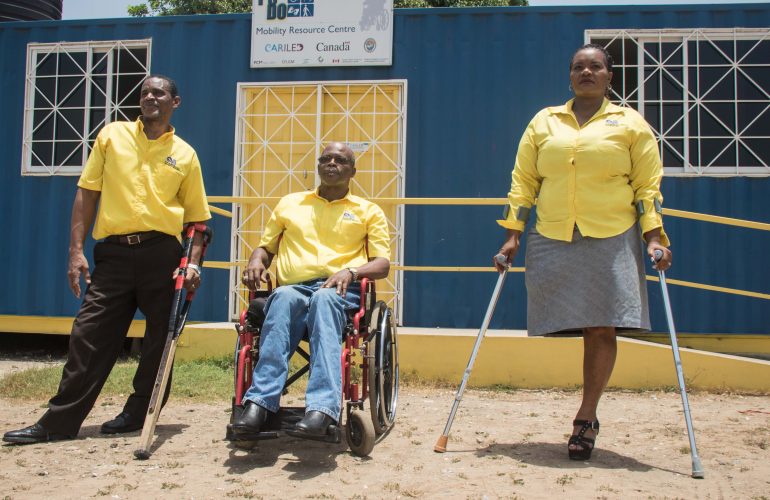Maintaining A Budget Creates Financial Independence
Twenty-five year-old clerical assistant, Christopher Wright, is challenged managing his monthly salary, as he sometimes spends more than his planned budget, and often on unbudgeted items.
“I try to create a monthly budget, but it can be difficult. And, I will sometimes spend more than I budgeted, on one or more items. I do receive additional funds on a bi-weekly basis, however, I often forget where that money goes,” he said.
He explains that he really wants to get this budget right, because he has goals. “I am currently working on it, because I appreciate that one cannot achieve their financial objective without a proper budget,” Wright laments.
Aneika Buckle, project officer, with responsibility for the JN Foundation’s Financial Empowerment Programme, says that Wright’s predicament is not unusual. And, she offers some financial tips to refine budgets and recommends “sticking to a properly planned budget”.
Understanding Your Finances:
Buckle informed, “First you need to identify all the sources from which you earn your income. Many persons believe that ‘their salary’ is their only source of income, although they have passive income.”
She said that the sum of all wages, dividends, real estate payments, alimony, interest payments and all other earnings received, over a given period of time, are regarded as “income,” and should be treated as such.
Educate Yourself:
Budgeting is more than simply writing down how you will spend your next pay cheque. “It is the first step towards financial freedom, providing you grasp the ‘dos’ and ‘don’ts’ of creating a budget.”
“Remember, the purpose of preparing a budget is to manage your money, which will result in a better life; hence, increasing your standard of living and that of your family. Being informed about how to spend, save and invest your money will result in greater success with your budget exercise, eliminate debt and ensure a brighter financial future.”
Identify Needs Vs Wants:
To design a successful budget, you first need to differentiate between your needs and wants. And, be realistic about taking care of your needs before your wants.
“Design your budget in a manner that your needs are a priority. Therefore, it would be silly to purchase that new dress or cell phone with the money to pay the electricity bill,” she pointed out.
Keep Track Of Your Cash Flow:
“Keeping a record of all the money you receive and spend over a given period is also critical, as this helps you to determine the total sum received in that period, not only from salary but from other sources of income you have; and the total amount you spend from all the income you received. This is especially true during the initial stages of creating your budget, this will confirm exactly how much you’re spending in each category.”
Keep Receipts And Other Papers Related To Your Finances:
This may seem like hoarding unnecessary papers; however, she noted that these papers can be scanned and uploaded, if necessary, for storage and discard outdated receipts.
“This helps to keep track of all your purchases and payments including utility bills, grocery receipts, credit card and other loan payments. And, allows you to have a better idea of all the expenses you cover for a particular period, and outstanding payments you may have,” she added.
Identify Unnecessary Expenditures:
“Ensure that your personal or household expenditure does not exceed your income. Total your monthly income and expenditure. Then subtract total expenditures from income. If you have a minus balance, then it means that your expenses are more than your income, therefore, you need to eliminate or reduce some expenditures. If your surplus is positive, clearly you have done well, execute as planned,” she commended.
Identify Other Ways To Improve Your Income:
If after balancing your budget, your surplus looks okay, but is not pleasing, it would be prudent to seek ways to increase your income, which could include: getting a better paying job; and using your skills or hobby to earn, or obtain a part-time job.
Savings:
“I know that sometimes it’s difficult to save when you know that after taking care of primary expenditures, additional funds will not be available. Therefore, my take on this is to discipline yourself and identify at least 10 per cent of your income in your budget to be saved,” Buckle said.
Here are some recommended options:
– Take advantage of sales and discounts…
– Buy wholesale or in bulk, it’s cheaper…
– Make a list before going shopping and stick to that list.
– Create an “emergency account,” with funds equal to six months of your living expenses, in case something happens, you will be able to survive until you get back on your feet.
Obtain A Credit Card:
Buckle said credit cards can be used to your financial advantage.
“This is money loaned to you by a creditor to make purchases and pay the bill at a later date. However, you must ensure that you use your credit card wisely and pay off your bill every month; in full and on time. That way, you will not incur any interest, increase your debt, and struggle to pay it off months later,” she advised.
She noted that it is important to select the right credit card, which is suitable for your needs and that you read and fully understand the terms of the agreement. Obtaining a credit card assists you to save your cash; use loan funds; and it is also a valid source for funds in case of an emergency.
Savvy credit card users clear their loan sum monthly; and benefit from the “cash back” and other benefits on some cards, and end up not paying interest on a monthly basis!
Miss Buckle maintains that in the final analysis, budgeting empowers one to appreciate the entire spectrum of income, expenditure and savings; and will eventually inspire some person to invest, improve their financial well-being and ultimately achieve their financial goals and financial freedom.







